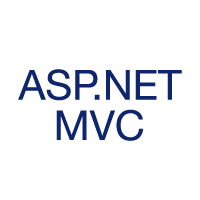Hire Freelance ASP.NET MVC Developers and Engineers
Duy Pham
Duy has 20+ years of software development experience using Microsoft's technology stack, primarily with .NET. He builds high-quality and high-performance back-end systems and creates web applications with good UX using modern frameworks like Angular or React. Duy's proactive and results-oriented with a love of not only writing but also removing code to ensure efficient, stable, and flexible software is delivered within the projected scope and budget.
Show MoreJoseph McNulty
Joseph is a professional with strong leadership skills, highly experienced in software engineering, and specializing in mission-critical systems in aerospace, defense, and telecommunications. He has over two decades of experience designing and developing sophisticated enterprise web applications using various technologies, most recently with ASP.NET MVC.
Show MoreAlexander Skogorev
For the past 15 years, Alexander has worked with .NET technologies. Back then, he began with .NET Framework 3.5 and currently works with the latest .NET Core. He has experience in cloud-based solutions such as Azure and Amazon. He has devoted a lot of time to optimizing code performance. Alexander has excellent experience in finding and fixing security issues. Besides the back end, he is good at modern front-end JavaScript frameworks such as Vue, React, and AngularJS.
Show MoreIvan Sedlak
Ivan has over 12 years of professional hands-on experience using a wide range of Microsoft technologies, mainly on enterprise web applications, security, internet, and serverless functions. His previous position was in a private company working as a senior .NET full-stack developer, software architect, and team leader. He has worked primarily on large-scale projects. Ivan has been working with Toptal clients since 2015.
Show MoreTolga Evcimen
Tolga is a software engineer with 9+ years of experience. He's worked in a startup company for five years as the lead engineer working on every phase of a software project, from requirement gathering and analysis to design, development, testing, and delivery using .NET technologies. For the next two years, he was part of a large and remote scrum team for an enterprise client working with Java technologies and Adobe Experience Manager. Lately, he's been focusing on AWS microservice architectures.
Show MoreGivi Bibileishvili
Givi is a motivated full-stack developer with several years of experience in .NET. His thirst for knowledge drives him to explore new technologies, adopt the best programming and design practices, and constantly look for new challenges. Givi has also occupied other roles, such as a CTO in multiple companies, with excellent results.
Show MoreRevaz Kartvelishvili
Revaz is a full-stack engineer with more than six years of software development experience working with various technologies. Has a great knowledge of the whole development process. Experienced in the Agile methodology, he communicates extremely well with his team and focuses on getting the job done quickly. Tech-wise, Revaz typically uses C# .NET Core for the back end and Angular for the front end.
Show MoreKen Hoffman
Ken has over 20 years of experience as an independent contractor providing application development services to his customers. For the last 12 years, he has developed applications on the .NET platform. Ken's motivation to deliver value-added solutions and pull projects through to completion has earned him the respect of his clients, resulting in long-term relationships.
Show MorePredrag Grkovic
Predrag is a very experienced software developer/architect with over 20 years of experience in back-end projects, web applications, and mathematical modeling. He has a solid mathematical background, confirmed at many international mathematical/physics competitions. A member of MENSA, Predrag is a fast learner who adapts quickly to different working environments, responsibilities, and team structures.
Show MorePablo Lopez
Pablo is a senior software developer with over twenty years of experience writing applications, especially web and back-end applications. He works well in teams, communicates clearly and succinctly, and is always interested in new and engaging challenges.
Show MoreCharles Southey
Charles has over 25 years of experience developing and delivering software solutions across a wide range of technologies and architectures for companies ranging from new startups to some of the world's biggest and best-known in their fields. He excels at matching business needs to the most appropriate technologies resulting in elegant and highly secure, scalable, and high-performing applications.
Show MoreDiscover More ASP.NET MVC Developers in the Toptal Network
Start Hiring
































